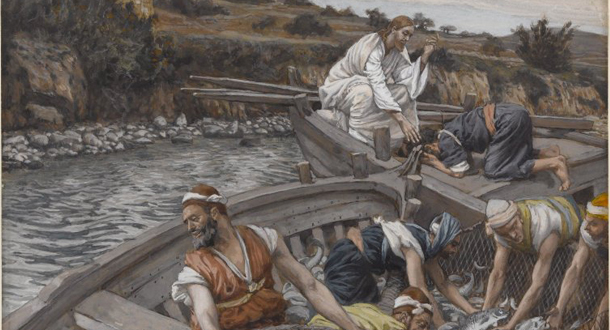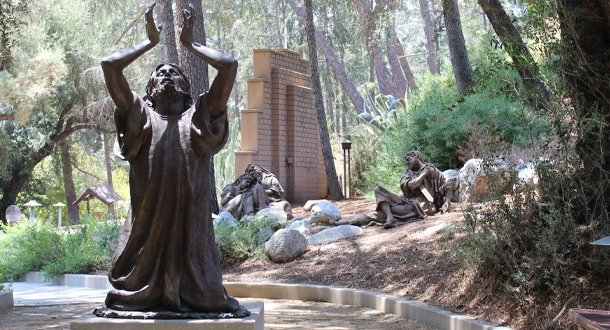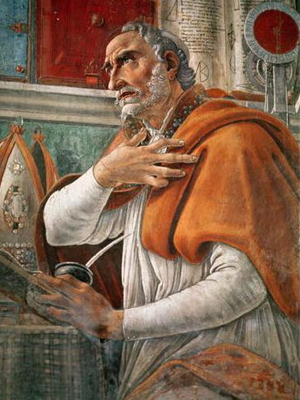
Scripture:
Reflection:
Let’s step back a few verses where Luke begins to set the stage for today’s gospel. In the previous ten verses Jesus has been in the village of Capernaum teaching and healing everyone who was brought to him. Moreover, he has cast out demons who reveal his true identity, crying out “You are the Son of God!” (4:34 & 4:41). Luke says the crowd went out to pursue Jesus, “and when they found him they tried to keep him from leaving them” (4:42). This is completely understandable. Isn’t it highly desirable to keep the miracle worker in town? These are people who have an agenda. So the stage is set for today’s gospel.
The scene unfolds: Two boats, a few tired and hungry fishermen, a large crowd pursuing Jesus who are now pressing in upon him. Take notice, Jesus is standing in the midst of this mass of humanity. The men who have been fishing have an agenda too. Luke says they are there washing their nets, indicating they are done for the day. It certainly hasn’t been a good day. Simon later tells Jesus, “We have been hard at it all night long and have caught nothing” It’s clear, Simon is tired, hungry, and he doesn’t have anything to take home for his family. When I am tired and hungry I become irritable. Realizing I project that onto Simon, the situation gets worse. When I am tired, hungry, irritable, and I just want to go home, but someone commandeers my vehicle and I can’t leave, I become ANGRY! Why would Simon and his companions be any different? I suspect their initial plan was to finish washing their nets and return home. Instead this man, who is at the center of these people’s attention, commandeers Simon’s boat and now he has to stick around and listen to this Galilean talk. As he listens to him, Simon doesn’t understand who it is who is in his boat. The Evangelist has Simon address Jesus as Master. It’s in listening to Jesus’ words that somehow captivate Simon to act where it really doesn’t make logical sense. He knows there’s no fish in this area. He has fished the area for hours and knows that it is a waste of time. Yet all these people are before him; he is on stage before this crowd. Yes, there is some social pressure as well. Amazingly, it is in this moment of working with the Lord, Simon will be forever changed. His vision shifts; he now sees who is the one in his boat. His posture changes; he drops to his knees in an act of submission. His title for Jesus changes; “Lord”. Before him is the sacredness, the holiness and the awesomeness of the divine. Notice too, even when Simon sees his unworthiness, Jesus NEVER judges him. He simply invites him into a new task and a whole new life. And the Evangelist goes so far as to immediately give him a new name. He is now Simon Peter.
For some of us, conversion starts as Jesus has to intercept our personal agendas. And for some of us who are more stubborn, Jesus has to literally wear us down. So many times peoples’ conversion stories are narratives of God’s persistence and patience up against our human limitations and our personal agendas. What is your conversion story? What has Jesus had to do to get your attention?
Have you noticed how Jesus entices us? He frequently steps in where a person already has plans, inviting a person to change their plans. The enticement leads to intrigue and can frequently lead to a shift in our agenda, doing something we would NEVER picture ourselves doing previously. With the mind and heart enlightened, directly in front of us, in a profound moment of recognition, is CHRIST!!! Paradoxically, in the end, we leave EVERYTHING behind and follow. We are eternally different.
Fr. David Colhour, C.P. is the local superior of St. Vincent Strambi Community in Chicago, Illinois.







